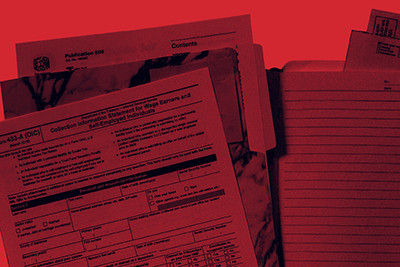Tax
Does Your Reinsurance Contract Contain an Excise Tax Clause?
Article reading time: 1 minute 30 seconds
Hot Take:

Several carriers have had the recent experience of being contacted by the Internal Revenue Service notifying them of a formal examination to be conducted of its Form 720 – Quarterly Federal Excise Tax Return, covering their payment of excise taxes on their foreign reinsurance programs as far back as 2016. For most, this comes as a complete surprise, catching them flat-footed. What in the world is a Form 720? Evidently, there is a campaign afoot by the Service to search for potentially unpaid excise tax on multi-millions of dollars of foreign reinsurance premiums. Our tax specialist, Anna Harutyunyan, quells your fears in her explanation below.
Full Article
Section 4371 of the Internal Revenue Code generally imposes a federal insurance excise tax on insurance or reinsurance premiums paid to foreign insurers for U.S risks. Some U.S. corporations are unaware of this obligation until they receive an IRS notice requesting their filed Forms 720, Quarterly Excise Tax Returns. Foreign reinsurance is listed on Schedule F of the insurance company annual statement. Therefore, the Service can easily identify insurers that carry foreign reinsurance and approach them to determine whether foreign reinsurance excise tax non-compliance exists.
It is important to note that the excise tax liability is joint and several among various parties, including the broker and the foreign insurance company. It has become an insurance industry common practice for reinsurance contracts to contain an excise tax clause that places the excise tax filing and payment responsibility in the hands of the reinsurance intermediary, not the immediate carrier. If the insurer determines that the excise tax clause is not included in its reinsurance agreement, it should take immediate steps to contact the intermediary and ask for the excise tax clause to be inserted.
Here is an example of an excise tax clause to be included in the reinsurance agreement:
Article 22 – Federal Excise Tax
A. The Reinsurer has agreed to allow for the purpose of paying the Federal Excise Tax the applicable percentage of the premium payable hereon (as imposed under Section 4371 of the Internal Revenue Code) to the extent such premium is subject to the Federal Excise Tax.
B. In the event of any return of premium becoming due hereunder, the Reinsurer will deduct the applicable percentage from the return premium payable hereon and the Company or its agent should take steps to recover the tax from the United States Government.
Additionally, the United States has treaties with several countries that allow an exemption from the excise tax. Rev. Proc. 2003-78 contains a list of foreign insurers or reinsurers that have a closing agreement with the IRS exempting them from the insurance excise tax.
What to do should you get an IRS request for examination of your Form 720 quarterly excise tax returns:
- First, calm down, don’t panic! Allow the blood pressure to ease.
- Next, check your reinsurance contract, locating the excise tax clause, and notify your reinsurance intermediary – they are quite (or should be) accustomed to this procedure;
- Notify your tax advisor just to let them know it is in motion – they should seldom have to become directly involved;
- You likely will need to conduct the first appointment with the IRS representative (hopefully by telephone) to explain the process, whereby the intermediary should take the reins from here.
